Kingdom Of The Planet Of The Apes: The Evolution Of Blockbuster Storytelling
In an age of cash-grabbing spectacles and bloated superhero actioners, Planet of the Apes is a rare Hollywood franchise whose meaning is wired into its very existence.
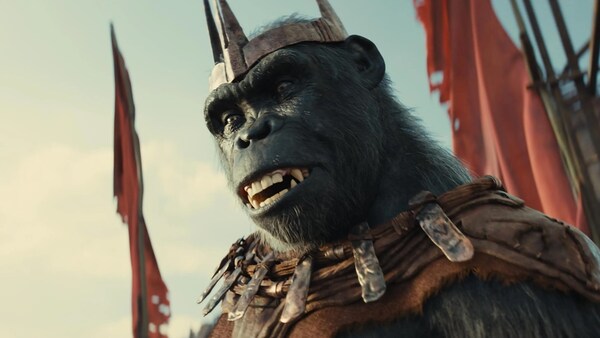
Last Updated: 01.06 AM, May 11, 2024
THERE’S something innately profound about the Planet of the Apes reboot. In an age of cash-grabbing spectacles and bloated superhero actioners, this is a rare Hollywood franchise whose meaning is wired into its very existence. The continuity of the film series embodies the essence of its core theme. The narrative somehow lies at the intersection of a prehistoric past and an apocalyptic future. And the storytelling is defined by one simple question: What if civilisation — and the planet itself — is rebooted? The notion is new and familiar at once.
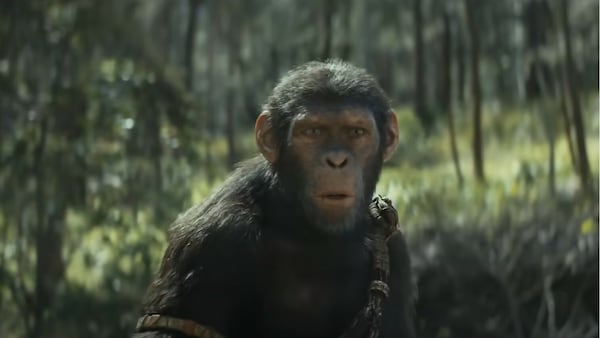
Initially conceived as a trilogy — Rise of the Planet of the Apes (2011), Dawn of the Planet of the Apes (2014) and War of the Planet of the Apes (2017) — the franchise was eerily prescient in its idea of humankind being wiped out by a pandemic of their own making. The first three films opened in a pre-COVID world, yet it almost seemed biblical in its staging of a hard reset. It reimagined human extinction with a twist. The life of Caesar — his courage as an ape-leader, his empathy towards humans — unfolded like a mythological origin story. The motif of apes replacing humans as the dominant species has always been a rap on our knuckles. It’s meant to say: Now watch how they handle evolution. But the progression of this franchise is shaped by its confession that not even science-fiction can change the fact that evolution is a cyclical tragedy. A meteor strike pales in comparison to the self-destructive genes of dominance. If humans were downed by their hubris, apes — or any other primate with intelligence — might be resigned to the same fate. They might be resigned to the same problems, patterns and prejudices.
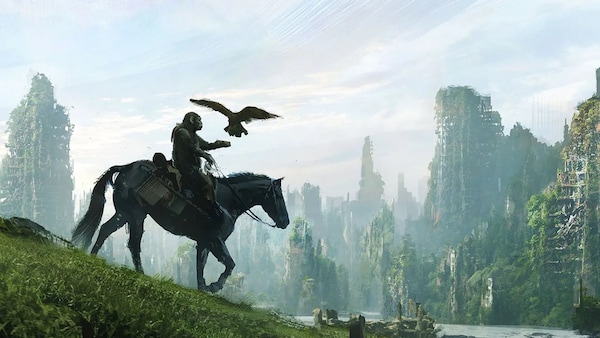
The latest film, Kingdom of the Planet of the Apes, is the most poignant manifestation of this motif yet. It begins generations after the death of Caesar. The role-reversal is complete: Unconnected clans of apes dot the globe, while a handful of humans are reduced to scavenging. The young hero is Noa, a chimpanzee of a bird-oriented clan, whose village is torched and stolen by a hostile gang of apes. The film revolves around Noa’s journey to bring them back. But it's the mechanics of this conflict that fuels his adventure. The moment Noa hears the attackers chant “For Caesar,” the real themes of the story start to emerge. The villain is revealed to be Proximus Caesar, an ape leader who has over the years twisted Caesar’s legacy (“Apes together strong”) to fortify his human-hating and authoritarian agenda. His identity is entirely based on the manipulation of Caesar’s teachings. His ‘kingdom’ remains stationed outside an old human bunker, a place that Proximus believes holds the key to accelerating his species’ evolution. He doesn’t want to wait thousands of years like the humans did; he even has a resident human teacher for condensed history lessons. In contrast, Noa’s new ally, an orangutan named Raka, is a purer disciple of the late Caesar — he upholds the spirit of compassion and detests Proximus for casting Caesar as some kind of holy Monkey God.
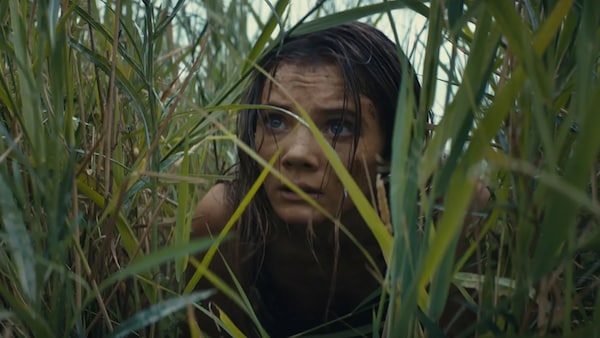
In other words, Kingdom of the Planet of the Apes is a potent allegory for religion. Caesar is known as the First Elder — a Jesus, Ram, Buddha and Muhammed rolled into one — and now the world is divided into believers, non-believers and extremists. The framework of the film speaks to the birth of religion as a concept and weapon, but it also speaks to a post-pandemic universe in which divides have been deepened by leaders who use politics as a medium of mythmaking and historical revisionism. Proximus is a fascist (his kingdom is punctuated with red flags) commander-in-chief who falsely reframes a message of unity as a call for cultural supremacy. And Noa is a stand-in for a peace-loving atheist — his village was oblivious to Caesar before the violence — who finds himself in the throes of religion by virtue of defending his clan. He automatically chooses a side and upholds the true meaning of “Apes together strong” by battling Proximus’ ways. It’s a matter of time before Noa himself ascends (or descends) into a folkloric figure. The climax unfolding across a bunker that becomes a refuge in a flood feels a ‘Noa’s Ark’ moment.
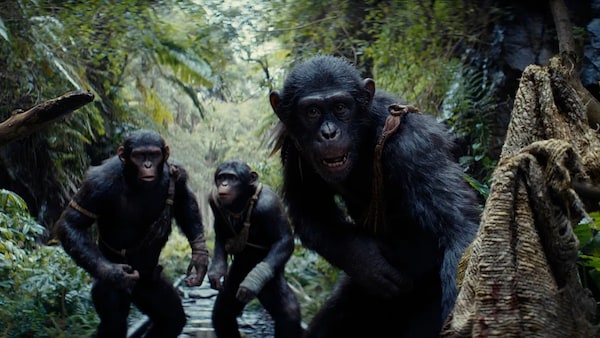
What’s just as poignant is the role of humans in this film. A teen-aged girl named Nova (as in ‘supernova’) appears to aid Noa’s journey. He protects her, but hesitates to trust her. She’s not like the other feral humans they see — she can speak, and is seemingly in search of a human settlement. It is later revealed that Nova’s purpose is more selfish and desperate: She is unwilling to accept that the human race is finished. She is unwilling to relinquish the narrative of evolution. And as she watches the apes face off, it’s almost like she can recognise history repeating itself. It’s like she’s watching the follies of her ancestors all over again. Just this time, it makes her nostalgic. She misses the agency to err — and by extension, the ability to be human. Nova might believe that she now knows enough to avoid the same mistakes; she hopes to break the pattern. What she doesn’t realise yet — but this film franchise does — is that ‘human’ is no longer a noun. It is a fading adjective. It’s just another empty word in the circle of civilisation.

 Premium
Premium